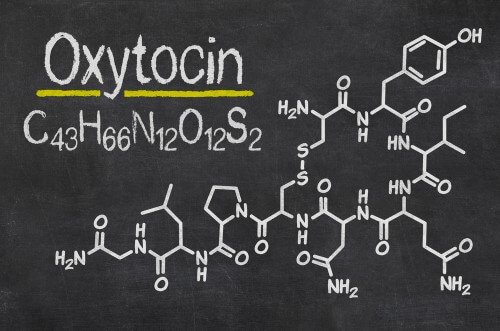Oxytocin increases social behaviors such as altruism, generosity, and empathy, but it makes us more willing to trust others.

Today in Israel we celebrate Tu Bab, Valentine's Day, this is the opportunity to get to know better the effects of the love hormone, oxytocin. Researchers have discovered significant similarities in the behavioral effects of oxytocin and alcohol. The research team says that the nickname of oxytocin - the love hormone hides its dark side - and claims that the similarity between its action and the action of alcohol is greater than previously thought.
The study published in the journal Neuroscience and Biobehavioral Reviews compares studies that tested the two compounds and detailed the similarity between the effects of alcohol and the love hormone on our actions.
Oxytocin is a hormone that is also used as a neurotransmitter produced in the hypothalamus, and secreted by the posterior pituitary gland. It has long been recognized as a factor that plays an important role in the birth process and the maternal relationship. Recently, it has also been identified as a brain chemical that plays an important role in determining social interactions and our response to romantic partners, hence its nickname - the 'love hormone'.
Oxytocin increases social behaviors such as altruism, generosity and empathy, but it makes us more willing to trust others. Its socio-cognitive effects are obtained by suppressing the activity of circuits in the limbic cortex and the prefrontal cortex - removing social barriers such as fear, anxiety and stiffness.
Dr. Ian Mitchell from the School of Psychology at the University of Birmingham explains: "We thought it was worth investigating Hogia, so we collected existing studies on the effect of both oxytocin and alcohol and were surprised by the amazing similarity between these two compounds."
We will see that they focus on different receptors in the brain, but cause similar phenomena such as GABA transmissions in the prefrontal cortex and limbic structures. These neural circuits control the way we experience tension or anxiety, especially in social situations such as interviews or perhaps when gathering the courage to ask a partner on a date. Taking compounds such as oxytocin and alcohol can make these situations seem less threatening.
The team members noticed that the ability to curb anxieties could explain the desire for a little "Dutch courage" in particular in the context of social situations such as a first date. Dr. Steven Gillespie, Mitchell's research partner, explains: the idea of "Dutch courage" - drinking to overcome nervousness, is used to combat the immediate obstacles - fear and anxiety. Oxytocin appears to mirror the same effects in the laboratory."
However, the researchers warn against self-treatment by consuming the hormone or drinking alcohol to improve self-confidence in difficult moments. Along with the health problems that accompany frequent alcohol consumption, there are also less desirable social-cognitive effects that both alcohol and oxytocin can encourage: people can be more aggressive, more arrogant, jealous of those they consider to be their competitors but society prefers them over them. The compounds can affect the feeling of fear which normally works to protect us from getting into trouble and we often hear about people taking unnecessary risks.
Dr. Gillespie added that he does not see in the foreseeable future an era in which oxytocin will be used as an alternative to alcohol, "but this is a fascinating neuromedical issue and it may have use in psychological treatment and psychiatric conditions. Understanding the mechanism that allows us to suppress certain actions and change our behavior can provide great benefits to many people. I hope that this research may shed new light on him and open avenues that we don't even have the ability to assess."
For the announcement of the researchers on the website of the University of Birmingham

One response
So.. not in love and driving, that's what people are married for? 🙂